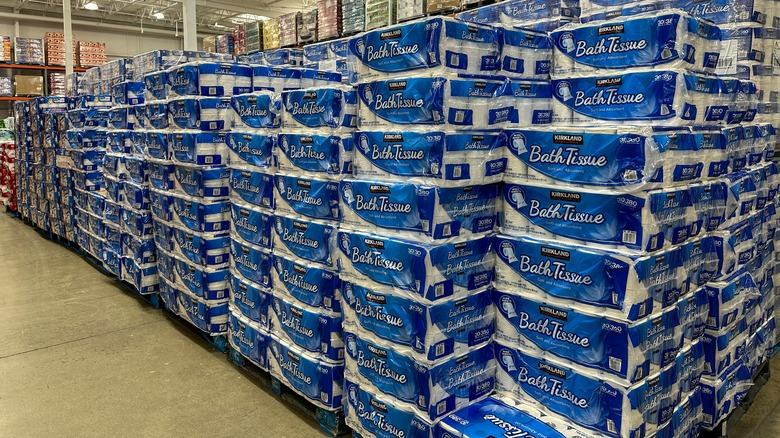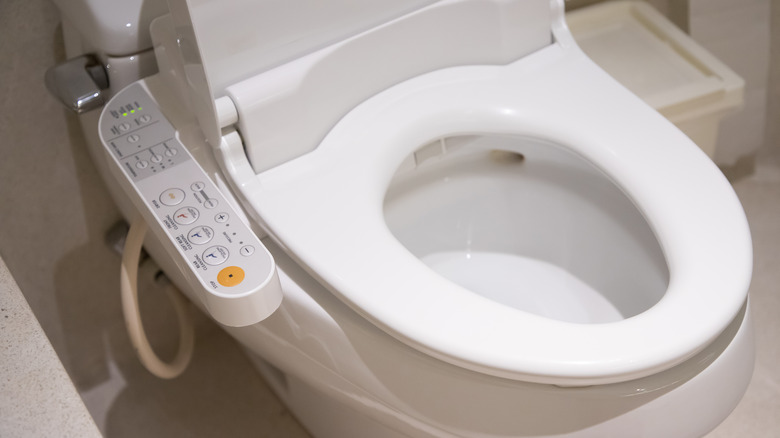Where & How Costco's Kirkland Toilet Paper Is Actually Made
Costco's ubiquitous Kirkland brand is famous for being mysterious and sometimes surprising — rumors have spread in the past about its store-brand products being fronts for items of much higher quality (although it turns out that the rumor about Kirkland-brand vodka bottles actually containing Grey Goose vodka is unfortunately untrue). You may be wondering about where other Kirkland brand items originate from, including the ever-affordable Kirkland toilet paper.
Costco does not own its own manufacturing facilities. Instead, its toilet paper is made by partners like Georgia-Pacific, an American company that also makes Angel Soft and Quilted Northern toilet paper. The European company Sofidel also manufactures some of Costco's toilet paper.
In the U.S., Kirkland toilet paper is harvested and manufactured not too far from Kirkland, Washington, the birthplace of Costco itself and the namesake of the Kirkland brand. Kirkland toilet paper is sourced from Canada's boreal forest and processed within Canada before it hits Costco locations worldwide. While Costco's toilet paper may be on the cheaper side, future generations may be paying a price for your grocery bill savings. Environment America reported in 2023 that Kirkland toilet paper is made from virgin wood fibers as opposed to sustainable or recycled paper products. Though the wood and processing varies depending on the manufacturer, in the U.S., wood for Costco toilet paper comes from logging old Canadian forests that have existed for thousands of years and provide homes to a wide variety of species.
Steps you can take to make your toilet trips more eco-friendly
Costco's signature brand is not alone in its contribution to environmental degradation through toilet paper manufacturing. Many popular toilet paper brands are not eco-friendly. In a 2020 report, the brands Charmin, Angel Soft, Quilted Northern, and Target's branded up & up Soft and Strong toilet paper were found to be made in a process that uses a high proportion of forest wood. Cottonelle, Scott, Trader's Joe's Super Soft Bath Tissue, and the deceivingly named Sustainably Soft toilet paper from Whole Foods' 365 Everyday Value brand all were found to use proportions of wood that are lower but still environmentally problematic.
If you would like to reduce your carbon footprint by preserving tree life, there are a number of toilet paper brands that environmental organizations have found use more recycled content or more sustainably sourced materials, meaning new trees do not have to be cut down to manufacture their tissue. Some brands that use recycled paper include Seventh Generation, Marcal, Green Forest, and Earth First. Other newer companies like Who Gives A Crap and The Cheeky Panda are also great options for eco-friendly consumers.
One way to eliminate the issue of tree usage completely is to give up toilet paper altogether. Bidets and electronic Japanese-style toilets that use water to cleanse your nether regions have surged in popularity in recent years. You'll still need toilet paper with these alternatives, but you'll use far less of it.

